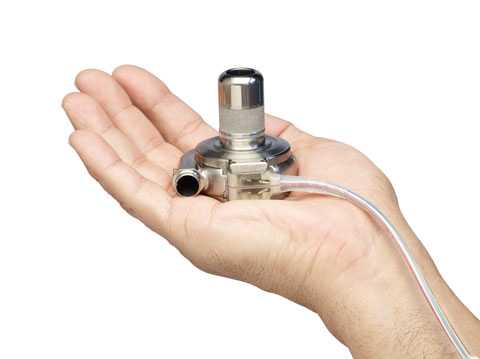Medtronic Hints at LVAD Plans
Medtronic's management offers a peek into the company's future as an LVAD maker just days after closing its acquisition of HeartWare.
August 29, 2016

Medtronic's management offers a peek into the company's future as an LVAD maker just days after closing its acquisition of HeartWare.
The HVAD is now a Medtronic product. How will HeartWare's left ventricular assist device (LVAD) business change now that it is part of Medtronic's massive product portfolio?
Executives at the medtech giant recently gave a glimpse of how HVAD will fit into its broad cardiovascular offerings and what Medtronic's R&D capabilities can bring to LVAD technology.
Speaking on Medtronics' latest earnings call, chairman and CEO Omar Ishrak said, "We're pleased to now significantly broaden our range of therapeutic options for heart failure patients with the addition of HeartWare and we expect it to add meaningful revenue growth to CVG [Cardiac & Vascular Group] throughout the balance of the fiscal year and beyond," according to the Seeking Alpha call transcript.
Catch up on the latest in cardiovascular device innovation at the MD&M Minneapolis Conference, September 21-22. |
Mike Coyle, executive vice president and group president of Medtronic's Cardiac and Vascular Group, said, "Obviously we're very bullish on the HVAD system." He added that recent sales results have shown "that this product with its smaller size and its performance characteristics should be able to compete very effectively . . ."
The company has gauged the global VAD market at an estimated $800 million today and forecasts growth in the mid-to-high single digits in 2016 and 2017, increasing to high-single to low-double digit growth after 2017, according to a press release.
The HeartWare purchase is in line with Medtronic's shift toward providing full solutions around specific diseases. It has made acquisitions to fill out its offerings in other diseases, like diabetes. Medtronic executives also framed its cardiovascular expertise as an asset that can be used to further LVAD technology.
Ishrak explained on the earnings call, "We really felt that we were in a position where we were getting critical mass around our expertise in heart failure and where HeartWare was positioned as a company we felt that we could add immediate value and through that combination drive up significant revenue not only in the first year but in the next couple of years . . ."
David Steinhaus, MD, vice president and general manager of Medtronic's Heart Failure business and medical director for the Cardiac Rhythm and Heart Failure division, said in a news release, "Not only does the current HeartWare portfolio expand Medtronic leadership across the heart failure continuum, its product pipeline--when married with our expertise--can result in progressively less-invasive heart pumps that have the potential to benefit even more patients."
Ishrak also noted that Medtronic's R&D may enhance the current and in-development LVAD technology. "Not only do we have complementary technologies and service capabilities, including infection control, physiological sensors and algorithms, remote patient monitoring and patient management and integrated diagnostics, but we also have experience with rechargeable battery technology and implantable controllers that can accelerate the development of reliable, fully implantable, LVAD systems," he said on the earnings call.
A fully implantable LVAD is viewed by some as a holy grail for the therapy, since it would allow LVAD patients more freedom without being continually tethered by a cable to a power source. Houston, TX-based ReliantHeart has discussed its in-development "Liberty" fully implantable LVAD and Thoratec--now part of St. Jude Medical--has been pursuing fully implantable technology too.
Medtronic is focusing some of its R&D resources on LVADs too, pulling from other areas of its heart failure therapies. Coyle told analysts on the earnings call, "We had a number investments internally going on in R&D programs directed specifically at heart failure, including diagnostic programs and services as well as enhancements to our CRT product lines and we basically are reallocating resources and people to support the activities within HeartWare and backing off on some of those because we actually think HeartWare return on investment will be even better."
The executives didn't give as much detail specifically on HeartWare's next-gen MVAD, which was initially being studied in a CE Mark trial that was later halted. Based on the latest commentary from HeartWare's management team, the MVAD is expected to be studied in a new trial once ready for human implants.
According to the Seeking Alpha call transcript, Coyle said, "We continue to look at the MVAD device and decide how aggressively we want to pursue that and we're working closely with the leadership team there, very impressed with the people who are doing that work and we look forward to being a leader in this space for decades to come."
[Image courtesy of HEARTWARE]
About the Author(s)
You May Also Like


